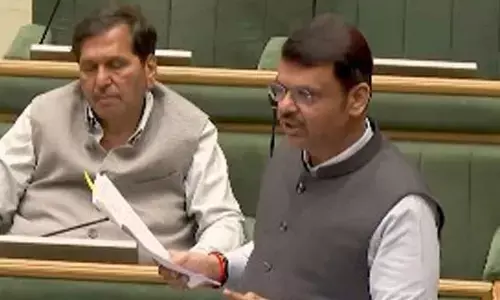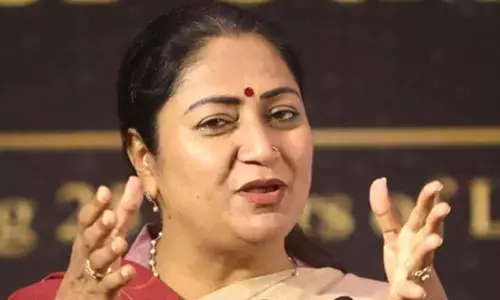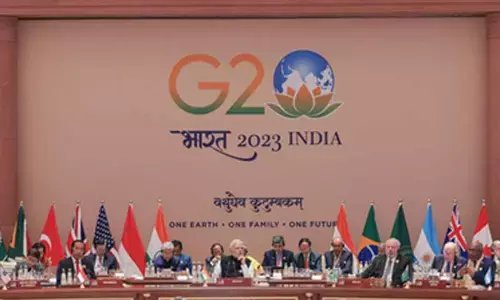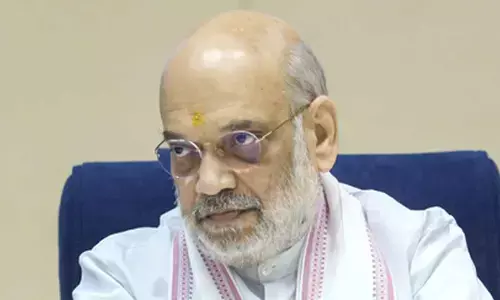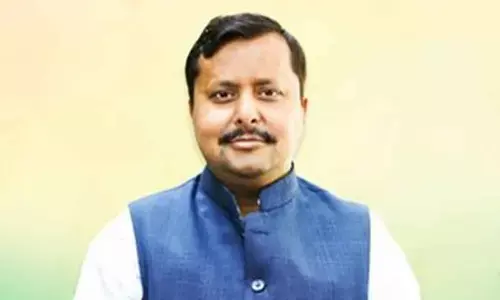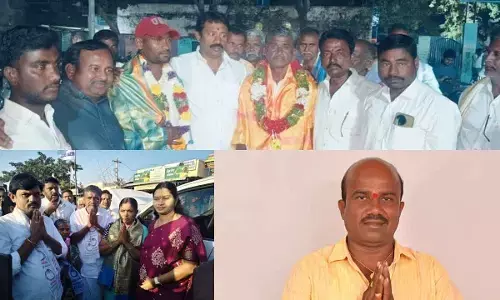Crusader for life, rests!

The doyen of classical music, Raghunath Panigrahi was the only person who could sing all the 24 verses of ‘Geeta Govinda’ and made most of the challenging songs sound easy with his fine pronunciation. He lent his voice for hit songs in several Odia, Tamil, Telugu and Kannada films. The magical voice went silent on August 25, leaving behind a musical treasure to cherish for ages to come
When he was just 19, he did playback for the top hero of Telugu films of his time, NT Rama Rao in the super-hit Telugu film ‘Ilavelupu’ and also gave his voice for the song, ‘Madi Sarada Devi’ in the film, ‘Jayabheri’
Sarada Lahangir
Raghunath Panigrahi was born on August 10, 1934 at Gunupur in Koraput district; about 500 km from Bhubaneswar. He was brought up in Puri where he was introduced to ‘Geeta Govinda’ by his father Neelamani Panigrahi, himself a scholar and classical singer. He then underwent training under Biswanath Das and Narasingh Nanda in traditional Odia music, Carnatic music from Muddu Papa Rao and Hindustani music from D V Paluskar in Chennai.
He started performing as a regular artiste of All India Radio in 1948. Panigrahi, a doyen of classical music, lent his voice for several films in Odia, Tamil, Telugu and Kannada. When he was just 19, he did playback for the top hero of Telugu films of his time NT Rama Rao in the super-hit Telugu film ‘Ilavelupu’. He was known for his own style of interpreting the Sanskrit epic poem Gita Govinda, composed by the 12th century poet Jayadeva.
As a child, he learnt from his father the classical way of singing ‘Gita Govinda’, which describes the unique relationship between Lord Krishna and the gopis, as preserved in the traditions of the Lord Jagannath Temple in Puri. Pandit Panigrahi did more than anybody else to popularise Jayadev’s ‘Gita Govinda’, which has been rightly hailed as the fountainhead of Odissi music, not just inside the state but the world at large. His wife, the foremost exponent of Odissi dance, Sanjukta and Pandit Panigrahi were the first artiste couple in the country to receive a joint Sangeet Natak Akademi in 1976.
While his singing of ‘Gita Govinda’ alone is enough to secure his place as a pioneer in the performing arts, ‘Suramani’ (a title given to him for his deeply mellifluous voice) went far beyond singing the classical 12th century text and excelled in every single genre that he tried – classical, Odissi, light, playback singing … you name it. Such was his versatility that he could carry off verses from the ‘Gita Govinda’, an Odissi song like ‘Na Jaa Radhika’ and an out and out modern love song like ‘Nali Nali Ei, Krushnachuda’ or the Telugu song ‘Chalani Raja o Chandamama’, with equal ease and felicity. “He was the first – and perhaps the last – singer-composer to use the classical form even in Jananas and modern songs,” says Chitta Mohanty, a die-hard fan of Raghunath Panigrahi.
“Raghunath is not a musician, but a magician. Very few in the world are gifted with such magical and bewitching voice and at the same time so brilliant in composition. We were friends for last 40 years. We have done hundreds of programmes together. His death is a great personal tragedy. It has created a void that cannot be filled. Music lovers in Odisha cannot forget his contribution in the field of Odissi music and dance” says Gopal Chandra Panda, an eminent Odissi vocalist and composer.
Well-known Odissi singer Sangita Gosain said there would never be another like him. “He was so immersed in accompanying Sanjukta Panigrahi in dance that he never pursued a full-fledged solo career in music. After her death in 1997, he limited his performances and had almost stopped performing in the last few years,” she said. “We feel we have been orphaned,” said Odissi dancer Aruna Mohanty.
“He was a father figure to me. His death is a huge personal loss for me. Once in a concert I described Gita Govinda as his composition, but he immediately corrected me, saying, ‘I did not compose it but inherited it.’ He used to often ask, ‘Who will hear this after 100 years?’ He has left me with the onerous responsibility of carrying forward the tradition of Gita Govinda and also all that have learnt from him.” says Mitali Chinara, a noted classical vocalist.
Pandit Raghunath Panigrahi received Sangeet Natak Akademi award (1976), Jayadev Samman (2008), Odisha Sangeet Natak Akademi award (1993) and Odisha State Film award for best playback singer (1997). Pandit Raghunath was honoured by the French government for his Gita Govinda composition way back in the 70s but had to wait till 2010 for the Padmashri award, a far lesser and much belated honour for the great master. He accepted it gracefully and with a smile though many of his admirers felt he should have declined it. Unassuming and humble to the core, making a fuss over anything is just not in Panditji’s grain.
The soft-spoken singer, however, was a man of steel when it comes to taking bold decisions in life. One example was his decision to give up a very successful and lucrative career in Chennai as a playback singer for Telugu and Tamil films to team up with his newly married wife Sanjukta Panigrahi who was then dreaming of launching a worldwide campaign to popularise the classical Odissi dance form. It was a tough life and the great couple had problems tackling bare survival issues for quite a few years. But Pandit Raghunath Panigrahi refused to crack under pressure and continued to pursue the ‘great dream’ that he saw together with his better half. The rest is history.
“My father was the best Bapa (in Odia Papa is called Bapa) of the world. During our childhood my parents could not spent much time with us because they had to move around the country for their programmes. Both Maa and Bapa were committed for a cause and secondly it was the source of their living. But whenever they are here they spent quality time with us. They taught us to be self dependant. Bapa was always cool .Whenever Maa got angry on us Bapa was always there to protect us. He was a hero for us. Simplicity and down to earth attitude, are qualities that I have learnt from my father,” shares Panditji’s youngest son, Sabyasachi Panigrahi, who is a video journalist by profession.
“My Father was my Guru. He was broad minded and gave us freedom to choose our profession. Of course I am into singing since childhood and sing all kind of songs classical and non classical but made my career as a Ghazal singer. My younger brother Sabyasachi was playing musical instrument but after the death of my mother, late Sanjukta Panigrahi in 1997, he chose to be a full-time video journalist. My father supported him when he made this decision,” says the eldest son and Ghazal singer Parthsarathi Panigrahi. “He always pays importance to the family values and unity. When he was bed ridden he called us and asked us to stay together forever. Our father is our hero,” both the brothers are proud to share.

Pandit Raghunath Panigrahi’s contribution as a singer and composer is enough to guarantee him a place in the pantheon of the great exponents of Odia performing arts. But there was more to him than just his singing. In founding the ‘Sanjukta Panigrahi Memorial Trust’, he has done more than anybody else in spotting and encouraging budding Odissi singers and dancers and recognising excellence in the art.
There was a deeply human side to him too. People, who lived near his Ashok Nagar house, fondly recall how the maestro would take every ailing or injured stray dog in the area under his care and nurse it back to health with care and attention. "All of us are deeply distressed by the tragic demise of Pandit Raghunath Panigrahi. This is a real loss to the world of classical music and he will certainly be deeply missed by his many friends and admirers," Odisha chief Minister Naveen Patnaik said. Barely two weeks after celebrating a quiet 80th birthday; the doyen of Odissi music Suramani Padmashree Raghunath Panigrahi lost his battle with throat cancer. Panigrahi is survived by his sons Parthasarathi Panigrahi and Sabyasachi Panigrahi.








